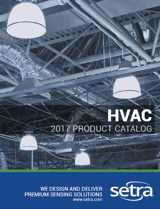Maintaining precise control over environmental conditions is essential for modern data centers, where even minor fluctuations in temperature, humidity, and air quality can impact uptime, operational costs, and efficiency. With the rapid growth of data centers supporting AI, machine learning, and digital infrastructure, reliability is critical. Differential pressure sensors play a central role in sustaining this reliability, and accurate calibration is key to their performance. To meet this demand, Setra Systems has partnered with Standard Calibrations, Inc. (SCI), creating a powerful end-to-end solution that ensures accurate sensor performance across all stages of data center operation.
Partnership with Standard Calibrations, Inc.: Redefining Data Center Measurement and Control
The Setra-SCI partnership is designed to tackle the accuracy and calibration challenges that frequently impact data centers. With over 90 years of combined expertise, Setra and SCI bring unparalleled knowledge and experience to data center operations, from initial sensor specification and Building Management System (BMS) consultation to ongoing calibration and maintenance support. This collaboration is especially valuable given SCI's findings that 1 in 4 data center sensors are compromised due to issues like incomplete specifications, improper installations, and delayed calibrations. By combining Setra’s advanced sensors for pressure, temperature, humidity, and liquid cooling with SCI’s precision calibration services, this partnership provides data center professionals with comprehensive tools for reliable performance and efficiency.
Why Sensor Accuracy is Critical for Data Centers
Accurate differential pressure sensors are essential to monitor and control environmental conditions in data centers, ensuring efficiency and sustainability. Proper calibration is crucial, as it validates that sensors provide accurate readings. In FDA-regulated cleanrooms, for instance, accurate pressure measurements are essential for compliance and operational safety. Similarly, in data centers, maintaining precise environmental control helps optimize energy usage, prevent downtime, and reduce costs.
Regular calibration also compensates for factors that affect sensor accuracy over time, such as temperature fluctuations, vibration, and sensor drift. By proactively addressing these variables, data centers can extend the lifespan of their sensors, improving the reliability of their monitoring systems and reducing the likelihood of costly equipment failures.
Overcoming Low-Pressure Calibration Challenges
Calibrating sensors for low-pressure applications, typically under 1” Water Column (W.C.), presents unique challenges. Traditional calibration methods often struggle to provide stable low-pressure levels, which are necessary for accurate calibration. Additional challenges include:
Stable Pressure Generation: Maintaining steady, low-pressure levels is critical for sensor calibration. Conventional tools can struggle with this, leading to less reliable calibrations.
Accurate Reference Standards: Finding suitable reference standards with high accuracy for low-pressure ranges is difficult but essential for reliable calibration.
Limitations of Manual Methods: Older calibration tools, like hand-driven pumps, are prone to microleaks and can take up to 35 minutes per calibration, often requiring multiple technicians.

The Role of Measurement Traceability
Establishing measurement traceability is critical to ensure sensor accuracy, as it links measurements back to national or international standards. This traceability not only confirms that sensors meet accuracy requirements but also enhances the credibility of calibration results. Traceable calibrations support operational efficiency and sustainability goals, providing:
Assurance of Accuracy: Validates sensor accuracy for both customers and manufacturers.
Reliable Environmental Control: Maintains optimal data center conditions by ensuring that all calibrations meet required standards.
Compliance and Credibility: Demonstrates adherence to industry standards, establishing trust and reliability in the data center’s monitoring systems.

Comprehensive Solutions for Data Center Success
Setra and SCI’s partnership offers an all-in-one solution to meet the demands of data centers, from initial design consultation through post-turnover support. Key stages include:
Pre-Build/Design Stage: Setra and SCI provide BMS consultation and sensor specification, minimizing risks in later stages and setting a strong foundation for optimal sensor performance.
Build/Construction Stage: During construction, the partnership offers sensor installation, calibration, and rigorous quality assurance to reduce future operational failures.
Post Turnover/Operations Stage: After turnover, SCI offers ongoing calibration through the SensorProQ QA/QC program, ensuring sensor accuracy and extending sensor longevity.

Conclusion
The growth of data centers calls for precision and reliability, especially in environmental monitoring and control. Accurate calibration of differential pressure sensors is essential to optimize operations and minimize downtime. Setra Systems, in collaboration with Standard Calibrations, Inc., delivers a complete solution for data center professionals, empowering them to achieve efficiency, sustainability, and robust performance. Through this partnership, data centers can confidently maintain optimal conditions and support the expanding demands of the digital age.




